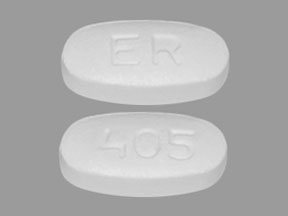
Mirapex ER Coupons & Savings Card – Discount Prices from $99.31
Brand for: Pramipexole er
My prescription
Edit
4.5MG, Pramipexole ER (90 Tablet Extended Release 24 Hours)
Select pharmacy

CVS
$99.31
COUPON PRICE
Albertsons
$216.76
COUPON PRICE
Walgreens
$232.20
COUPON PRICE
Walmart
$1156.92
COUPON PRICEMirapex ER savings card
Show this card to your pharmacist
CVS
$99.31
BIN
ID
PCN
GRP
019876
LHCCE5E394
CHIPPO
LHX
Powered by
More prescriptions for restless leg syndrome
More prescriptions for restless leg syndrome
Price history for Mirapex ER (brand) & Pramipexole ER (generic)
90 Tablet Extended Release 24 Hours, 4.5MG
Average retail price for Mirapex ER
Average retail price for Pramipexole ER
Average SaveHealth price for Pramipexole ER
Our price history data is based on aggregated prescription data collected from participating pharmacies in America. Our prescription data updates daily to reflect the latest price changes. If you notice a missing data point, it means there wasn't sufficient data available to generate a monetary value for that date.
Over the last 12 months, the average discount price of Mirapex ER is $356.25 using the SaveHealth savings card. That's an average savings of 58.91% on Mirapex ER with our discount card.
*Retail prices are based on pharmacy claims data, and may not be accurate when we don't have enough claims.
Mirapex ER (Pramipexole ER) dosage forms
Dosage Quantity Price from Per unit 0.375MG 30 Tablet Extended Release 24 Hours $36.65 $1.22 0.375MG 90 Tablet Extended Release 24 Hours $81.34 $0.90 0.75MG 30 Tablet Extended Release 24 Hours $36.65 $1.22 0.75MG 90 Tablet Extended Release 24 Hours $81.34 $0.90 1.5MG 30 Tablet Extended Release 24 Hours $42.64 $1.42 1.5MG 90 Tablet Extended Release 24 Hours $99.31 $1.10 2.25MG 30 Tablet Extended Release 24 Hours $54.17 $1.81 2.25MG 90 Tablet Extended Release 24 Hours $133.90 $1.49 3MG 30 Tablet Extended Release 24 Hours $42.64 $1.42 3.75MG 30 Tablet Extended Release 24 Hours $50.93 $1.70
| Dosage | Quantity | Price from | Per unit |
|---|---|---|---|
| 0.375MG | 30 Tablet Extended Release 24 Hours | $36.65 | $1.22 |
| 0.375MG | 90 Tablet Extended Release 24 Hours | $81.34 | $0.90 |
| 0.75MG | 30 Tablet Extended Release 24 Hours | $36.65 | $1.22 |
| 0.75MG | 90 Tablet Extended Release 24 Hours | $81.34 | $0.90 |
| 1.5MG | 30 Tablet Extended Release 24 Hours | $42.64 | $1.42 |
| 1.5MG | 90 Tablet Extended Release 24 Hours | $99.31 | $1.10 |
| 2.25MG | 30 Tablet Extended Release 24 Hours | $54.17 | $1.81 |
| 2.25MG | 90 Tablet Extended Release 24 Hours | $133.90 | $1.49 |
| 3MG | 30 Tablet Extended Release 24 Hours | $42.64 | $1.42 |
| 3.75MG | 30 Tablet Extended Release 24 Hours | $50.93 | $1.70 |
| 3.75MG | 90 Tablet Extended Release 24 Hours | $124.20 | $1.38 |
| 4.5MG | 90 Tablet Extended Release 24 Hours | $99.31 | $1.10 |
| 4.5MG | 30 Tablet Extended Release 24 Hours | $42.64 | $1.42 |
How does Mirapex Er work?
Mirapex ER (pramipexole) works by acting as a dopamine agonist. It mimics the effects of dopamine, a neurotransmitter in the brain, which helps improve movement and reduce symptoms in conditions like Parkinson's disease. By stimulating dopamine receptors, it helps manage symptoms such as tremors, stiffness, and difficulty with movement.
Does pramipexole come in extended release?
Yes, pramipexole is available in an extended-release formulation.
Using the SaveHealth discount card, what is the price of Mirapex ER without insurance?
Using the SaveHealth discount card, the price of Mirapex ER without insurance is $99.31.
What is the price of Mirapex ER at CVS?
The price of Mirapex ER at CVS is $99.31.
What is the price of Mirapex ER at Walgreens?
The price of Mirapex ER at Walgreens is $232.20.
What is the price of Mirapex ER at Walmart?
The price of Mirapex ER at Walmart is $1156.92.
